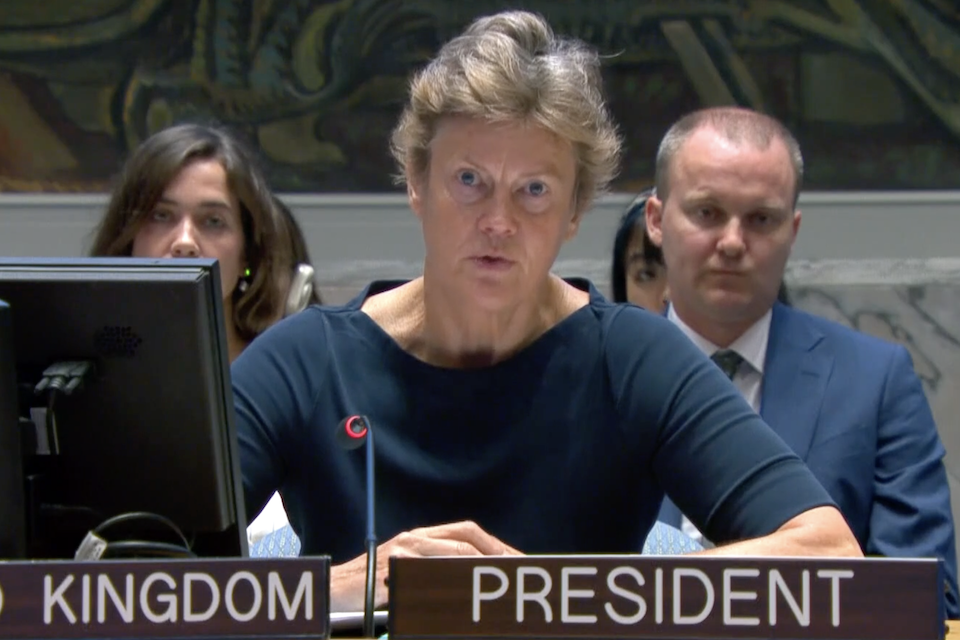Without a mandate 4.1 million people in north-west Syria are living in limbo not knowing if food and medicines will reach them: UK statement at the Security Council
Statement by Ambassador Barbara Woodward at the UN Security Council meeting on Syria.

I’d like to start by thanking Special Envoy Pedersen for your briefing and also Director Rajasingham for your briefing and for the work of your teams on the ground.
Two weeks ago, Russia vetoed the nine-year old UN mandate to provide humanitarian assistance to the 4.1 million people in need in north-west Syria.
Those 4.1 million people are now living in a limbo, not knowing if food and medicines will reach them in the coming weeks and months. In those two weeks, as we’ve heard, not a single truck has crossed the Bab Al-Hawa crossing, where 85% of UN assistance previously transited. Not one truck.
Because, although Syria says they have given the UN permission, the conditions that Assad has set out make it unsafe to do so. And the UN has been clear that the conditions Syria has set out are inoperable and unworkable.
They also undermine OCHA’s neutrality, impartiality and independence. The crossings the UN now has to use instead at Bab Al-Salam and Bab Al Ra’ee are currently open only for another 21 days and not set up for the capacity that was crossing at Bab al-Hawa.
I myself saw on the 8th of June when I was there 60 trucks crossing and that contrasts to the 18 trucks that the UN has managed to get across in the last week.
So Russia and Syria’s claims that they are driven purely by humanitarian considerations is simply not supported by the facts on the ground.
The north-west of Syria is an active conflict zone where all parties, including the Regime and Russia, continue to launch attacks with civilians caught in the crossfire.
The United Kingdom supports the ongoing discussions between the UN and Syria to lift its conditions and let the aid flow.
It’s critical that humanitarian access is negotiated with all conflict actors and that aid reaches the most vulnerable according to humanitarian principles. The lack of a Council mandate affects longer-term early recovery work as well that this Council has agreed is essential across Syria.
So we continue to believe that action by this Council, with politics set aside, is the best way to ensure access continues to those who need it. In the meantime, we urge Syria to live up to its obligations under international law and engage with the UN in good faith.
Ultimately, the people of Syria and the wider region need a sustainable end to this conflict in line with Security Council Resolution 2254. So we encourage a resumption of constitutional committee talks in Geneva without further delay and without further excuses.